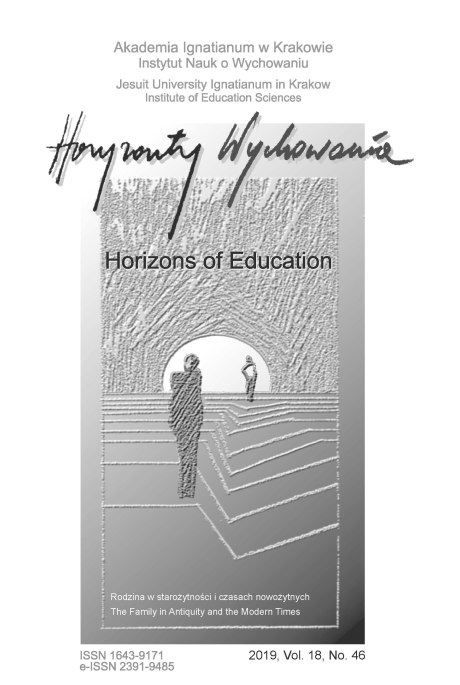“Przegląd Powszechny” on the School System after Polish Independence
“Przegląd Powszechny” on the School System after Polish Independence
Author(s): Jerzy KochanowiczSubject(s): Christian Theology and Religion, Education, History of Education, State/Government and Education, Pre-WW I & WW I (1900 -1919), Interwar Period (1920 - 1939)
Published by: Uniwersytet Ignatianum w Krakowie
Keywords: restoring poland’s independence; education in Poland; church and school; Jesuits in Poland;
Summary/Abstract: RESEARCH OBJECTIVE: The aim of this paper is to provide insights into the views of the influential social and religious periodical “Przegląd Powszechny” on the principles of the Polish school system after Poland regained independence in 1918. THE RESEARCH PROBLEM AND METHODS: In 1918, the Republic of Poland had to re-create its own school system. The discussion on the model of schools was joined by the periodical “Przegląd Powszechny,” published in Krakow by the Jesuits. The main questions in this article are: What did the authors of the magazine write about proposals for changes in education? How were they assessed? What particular issues did they pay attention to? In the analysis of the journal’s content, the historical method of research into education was used. THE PROCESS OF ARGUMENTATION: The author analyzed the content of the journal issues from the autumn of 1918 to the spring of 1921, the moment at which the “March Constitution” was an nounced, which formulated the main lines of development of education. The article briefly discusses chronological political events related to education and shows the reaction of the periodical to them. RESEARCH RESULTS: Research shows that the authors of the periodical reacted rapidly to schemes for reforming Polish education. Their statements were bold, uncompromising, and critical of some of the proposals made by educational authorities. “Przegląd Powszechny” focused primarily on the postulate to create a confessional public school, as well as criticizing the state monopoly on matters of education. CONCLUSIONS, INNOVATIONS, AND RECOMMENDATIONS: The findings show that some educational solutions introduced in Poland 100 years ago were a manifestation of the state’s greater trust in its citizens than is the case now: compulsory education could be carried out at home, there was no obligatory control of private schools by the state, prospective teachers could be trained in private institutions according to their own programs, and parents had a decisive voice on the issue of raising their children.
Journal: Horyzonty Wychowania
- Issue Year: 18/2019
- Issue No: 46
- Page Range: 85-96
- Page Count: 12
- Language: English

